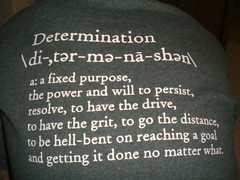Career Coaching – Empathy
 When providing career coaching support, empathy is essential.
When providing career coaching support, empathy is essential.
But how can a career coach use the right amount of empathy? In this blog I look at the three faces of empathy – accuracy, range and depth?
Hope Action Theory and Empathy
In my ongoing studies for professional development, I am currently studying Hope Action Theory. This theory emphasises the essential role of empathy in the work of a career coach. A client, be that a young adult or mature-age client, will easily detect a lack of concern, or absence of empathy, no less so than an adult client.
Humans pick up on the behaviour of others really quickly. Children, teenagers and young adults can tell if a friend, teacher, sports coach, or family member is distracted, or not listening carefully. A facial expression, the lack of eye contact, or a person answering a phone call, for example, are signs that true empathy is lacking. A career coach needs to be mindful of all of these behavioural cues. The client will then feel safe in the process and trust can develop.
So what is empathy? And, what does it mean for a career coach to demonstrate all three faces, accuracy, range and depth of empathy?
Empathy is…
Emotion researchers generally define empathy as the ability to sense other people’s emotions, coupled with the ability to imagine what someone else might be thinking or feeling.
Career counselling, or vocational guidance, used to be seen as an ‘advisory’ service. Even the title “Career Educator” lacks the holistic and caring aspect that is important in the client-coach relationship. This is especially important in career coaching with adolescents. Students and young adults, roughly between the ages of 15 to 25, are going through so many significant transitions and tend to be over-represented in the unemployment statistics in many countries.
A sensitivity to emotions and the ability to imagine what the other person is going through, is key for these young career coaching clients. For mature-age clients, whose life experiences are varied and likely quite profound, trust can be very easily lost if a career coach is insensitive.
Being the “all-knowing specialist (runs) counter to empathy development”. Career Coaching is a support role. Yes, we teach skills, such as how best to explore options, find and use the best resources. But first we listen. YOU are the expert of you. Career coaches find out about what you are dealing with so as to be able to walk with you in your journey for a while.
Accuracy of Empathy
What the theorists working on Hope Action Theory emphasise is that we cannot accurately empathise unless we step down from the ‘powerful’, authoritative, advisor status and sit IN the situation of the young person. Indeed, Dr Norman Amundson says that career coaches need to think about times when they themselves have felt powerless. Or they may even have to place themselves into positions where they themselves feel powerless. (Amundson, N. Active Engagement, Anniversary Edition; 2018, p. 272-275).
Career coaching is not the writing out of a list of instructions. It is much more than this.
Range of Empathy
For a career coach, a range of experiences with a wide variety of clients, from different backgrounds, instills empathy. Travel and a range of life experiences outside of our work can also provide such feelings and emotions.
Again referencing Amundson, it is easy to “get into a rut and only deal with a narrow group of people” and this limits the performance of a career coach. By dealing with special needs, indigenous, unemployed, migrant, and otherwise disadvantaged clients, from a wide variety of locations and contexts, a range of empathy is possible.
Depth of Empathy
Depth of empathy is gained in humans by way of deep and meaningful connections with others. Again, our clients can spot the absence of such sensitivity. A professional career coach who has developed such insights, with respect to human behaviour, will therefore come across with the necessary authentic empathy.
As career coaches we need to be willing to reflect upon our own experiences, in particular our challenges. This is what I have been doing as part of this training and study in Hope Action Theory. It has been a good networking opportunity as well, which is also beneficial in the work of a career coach.
Showing Empathy during the Covid-19 Pandemic
The past two years in particular many of us have faced considerable struggles, due to the Covid-19 global pandemic and the many lockdowns we have been enduring. As discussed in a recent blog about motivation, a client will more readily trust an empathetic career coach. They feel safe to divulge exactly how they are experiencing. Thanks to my ongoing training, with some of the best career development theorists, I have been reminded of how important a part empathy plays in the career coaching process.
Our work has been much sought-after. This is particularly the case in the past two years of the Covid-19 pandemic. Indeed, our client numbers have increased emormously in this period. Our clients report that they, or their adolescent child, have felt a genuine care and support throughout our work together. It is because we care that we are successful in Helping Other People Evolve (HOPE).
This is our mission at Karen Your Career Coach
www.karenyourcareercoach.com.au/contact/
Similar articles

“There is nothing Clever about not being Happy” Arnaud Desjardins
That’s a pretty bold statement, Monsieur Some Gardens! I found the quote in a gorgeous book, Buddhist Offerings 365 Days, Edited by Danielle and Olivier Follmi, and published by Thames and Hudson. Alongside of each days’ quote is a stunning photograph, and against this particular quote is a photo of a horse lying on its […]

“Where there’s a Will, there’s a Way”
I heard myself saying this to a despondent young man the other day, and wondered how helpful I was being. Oh dear, questioning my own tips might be a troublesome habit, however it does serve to galvanise me into action to check on my sources and ponder the idiom.

20th March is International Day of Happiness
“Each individual is master of his or her destiny: it is up to each person to create the causes of happiness” The 14th Dalai Lama 20th March is International Day of Happiness What a pity we need special days and coffee table books with images of smiling faces to nudge us into a happiness […]
